
Grapes During Pregnancy: Are They Safe, Or A Big NO?
Hey mama!! Are you craving some sweet, delicious frozen grapes? Are those fussy pregnancy hormones taking a toll on your tastebuds? We get it; you are not the only one to have it. Craving this sweet, summary delight is nothing uncommon. But it’s concerning as there are some limitations on the fruits that you are allowed to have during pregnancy. Grapes during pregnancy might fetch you some side eyes, but are they really out of limits? Or is it just another stereotypical piece of information that has no logical background?
If you are confused, too, let us bring you some relief.
In this article we will minutely discuss if you can give into your cravings and if grapes during pregnancy are a yes, or if you have to wait till your little one arrives.
Are Grapes During Pregnancy Good?
While pregnant, it is important to make sure that the food you are consuming is healthy and safe for both you and your baby. As per studies, grapes are usually safe for consumption during pregnancy and have a number of health benefits for both the mother and the child.
Grapes have essential antioxidants, vitamins, and fiber that helps in boosting the immune system and keeping away constipation. However, there is one thing you need to keep in mind. Even if you are craving the fruit, you need to only eat a moderate amount of it because of their high sugar content. Grapes also contains resveratrol, which can be toxic when consumed in excess quantities.

It is also necessary to clean the grapes thoroughly before you eat to reduce any risk of contamination. As it is with any other food, it is important that you consult with your healthcare provider first if there is any concern that you need to sort out.
Pregnancy is a vulnerable time, and discussing with your healthcare provider first is a wise decision to take to eliminate any underlying risks of having grapes during pregnancy.
Benefits Of Eating Grapes During Pregnancy
Yes, there are certain risks associated with having grapes during pregnancy. But that does not eliminate the benefits that it brings to the table. Grapes have multiple health benefits when it comes to you and your baby. Here are some possible ways in which you and your baby might profit from consuming grapes while pregnant.
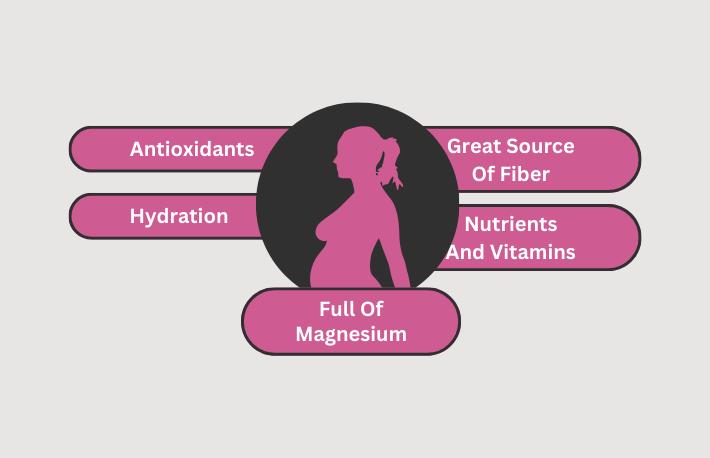
Antioxidants
Grapes have multiple variants of antioxidants, which are beneficial for both you and your baby. Antioxidants are great at boosting your immunity and promoting the healing process. They might also reduce any risks of pregnancy complications, including fetal growth restriction and preeclampsia. They also have the potential to reduce any risk of miscarriage.
Great Source Of Fiber
When you are pregnant, fiber is vital to lower the risks of pregnancy-related diabetes or preeclampsia. It also helps avoid constipation, a common complaint during pregnancy, especially if you are taking iron supplements. B
Because of their high fiber content, grapes help in softening and loosening bowel motions.
Hydration
You will have to increase the quantity of fluid you are consuming during pregnancy to make a sufficient amount of amniotic fluid to support the baby’s development. You will also have to stay hydrated enough to help your digestion, and prevent constipation. Grapes have 80 to 90 percent water content in it. So, eating them will help you receive the exact amount of fluid that you need.
Nutrients And Vitamins
Grapes have multiple nutrients and vitamins that help promote a healthy pregnancy. For example, it is necessary to consume enough Vitamin C not only for your health but also for the development of the baby. Just ten pieces of grapes contain 1.5mg of Vitamin C.
Grapes are also rich in Vitamin A, a necessary nutrient for the formation of your baby’s body and its eye development. Not having enough vitamin A while pregnant is associated with a higher chance of childhood death because of infection.
While it is rare, deficiency of Vitamin A might also result in night blindness in pregnant women. However, supplementation might be quite dangerous during pregnancy. So, it is better to look for the most natural sources of nutrients during pregnancy.
Full Of Magnesium
Eating grapes during the first trimester of pregnancy increases the magnesium supply in your body. this further helps in reducing the discomfort caused by cramps. Every pregnant women will agree that cramps get unbearable during the later stages of pregnancy, and grapes can help greatly to sort it out.
Precautions To Eat Grapes During Pregnancy
Grapes are healthy and safe for consumption while you are pregnant. They are excellent sources of water and fiber. But, there are a couple of safety precautions that you need to keep in mind if you wish to have the sweet and delicious taste of grapes during pregnancy.

Eat Grapes, But Stay Away From The Resveratrol Supplements
The antioxidants available naturally in grapes have multiple benefits for both the mother and the baby. With that being said, some substances are quite toxic in more concentrated or larger amounts, including the antioxidant resveratrol. It is found in blueberries, grapes, and dark chocolate. This compound has strong healing powers, like an antioxidant. However, the concentrated amount that is found in the supplement pills or powders might not be as healthy for the developing baby.
You can enjoy your grapes, but try to stay away from any supplement that advertises similar benefits. Talk to your healthcare provider if there are any concerns or questions about eating grapes during pregnancy.
Monitor The Sugar Consumption
However beneficial grapes may be, they are rich in natural sugar. They stay on the higher end, with 15 grams of sugar in each cup. Some amounts of natural sugar are good for your body. But, you need to keep moderate amounts of whatever fruits you are eating, especially during pregnancy, to keep things balanced.
Also, you must not juice the fruit that you choose to eat. Fruit juices, even when they are homemade, have a high quantity of sugar that is not preferable for consumption during pregnancy.
If you stand at risk for gestational diabetes, you definitely need to keep an eye on your sugar intake. Talk with your doctor to check if you need to avoid eating grapes altogether or just limit the amount you consume.
Wash The Grapes Before Eating
Wash each and every piece of fruit to make sure it is free from any dirt or debris that might be present on the surface while on the way from the field to your home. Washing also makes sure that the fruit is free from pesticides. Grapes have been found to have a comparatively higher level of pesticide on their skin. Washing them thoroughly with water to remove every bit of pesticide from it.
Fruits That Are Safe During Pregnancy
Eating habits during pregnancy get pretty complicated. Your tastebuds become divas, and you start craving anything that pleases your eyes. Developing a liking for different fruits is not uncommon during pregnancy. Now that you know that it is safe to have grapes during pregnancy, let us take you through some other fruits that are deemed safe for pregnant women to consume.
Apricots
Apricots are rich in:
· vitamins A, C, and E
· calcium
· iron
· potassium
· beta carotene
· phosphorus
· silicon
Each of these nutrients is extremely beneficial for the growth and development of the baby. Iron helps prevent anemia, and calcium keeps the teeth and bones strong.
Oranges
Oranges are great sources of:
· Vitamin C
· Folate
· Water
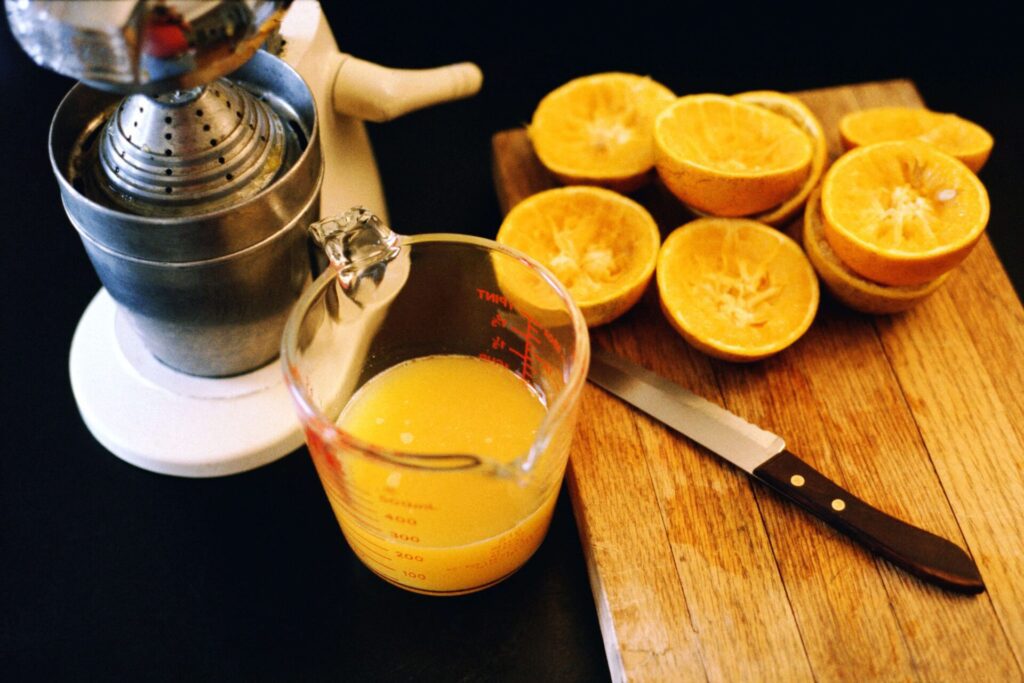
Oranges are good for keeping a person healthy and hydrated. Vitamin C can help in preventing cell damage and help with iron absorption.
Folate majorly helps in preventing neural tube defects, which can cause spinal cord or brain abnormalities in the baby. Neural tube defects might result in conditions like spina bifida, where the spinal cord does not properly develop, and anencephaly, where a big part of the skull and brain remains missing.
Pears
Pears offer a number of nutrients like:
· Potassium
· Fiber
· Folate
Getting enough fiber in your pregnancy diet might help ease your constipation, a common
problem during pregnancy.
Potassium can help with heart health for both the mother and the baby. It also helps in stimulating cell regeneration.
Mangoes
Mangoes are excellent sources of vitamins C and A.
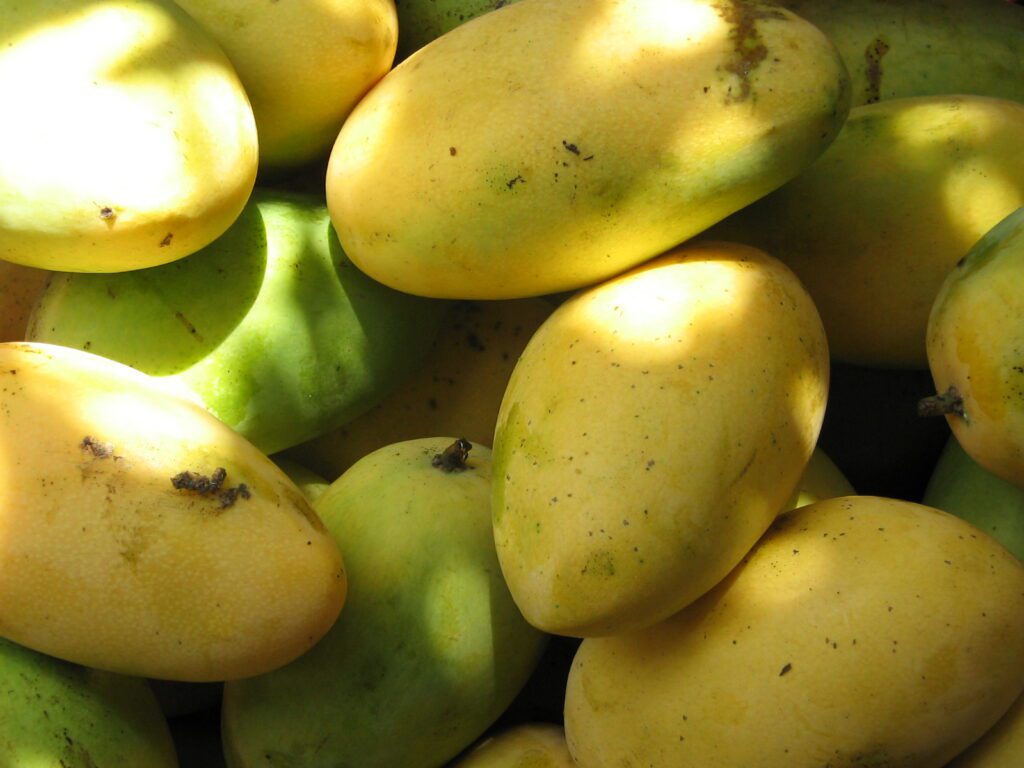
One cup of chopped-up mangoes supplements for a woman’s 100 percent recommended daily allowance of vitamin C, more than a third of their everyday vitamin consumption.
A baby with a deficiency of vitamin A might have low immunity and a high risk of possible complications, like respiratory infections.
Pomegranates
Pomegranates, for pregnant women, are great sources of:
· vitamin K
· calcium
· folate
· iron
· protein
· fiber
These nutrient-dense fruits are great sources of energy. They are high in iron, which also helps in preventing iron deficiency.
Vitamin K is also important to maintain healthy bones.
Studies suggest that drinking pomegranate juice might help reduce the risk of any injury to the placenta.
Avocados
Avocados are great sources of:
· vitamins C, E, and K
· monounsaturated fatty acids
· fiber
· B vitamins
· potassium, copper
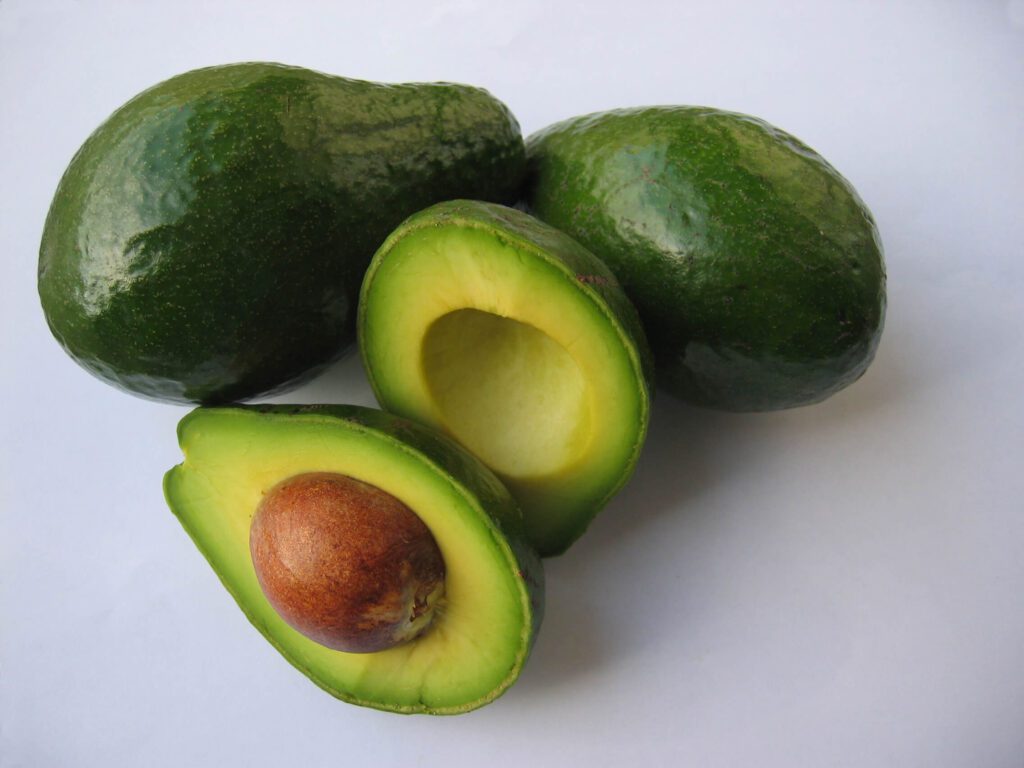
Avocados have healthy fats that give energy and help prevent defects in the neural tube. They also help boost the cells that are responsible for developing the skin and brain tissues of the developing baby.
The potassium present in avocados can also cure leg cramps, another symptom that is very common during pregnancy, mainly in the third trimester.
Guava
Guava is an amazing fruit for women craving more of these utrients:
- folate
- vitamins C and E
- isoflavonoids
- Carotenoids
- polyphenols
Guava has a varied combination of nutrients, making it the best for pregnant women. Eating guava while pregnant may help in relaxing muscles, reduce constipation, and promote digestion.
Bananas
Bananas have a high level of:
· Potassium
· Vitamin C
· Fiber
· Vitamin B-6
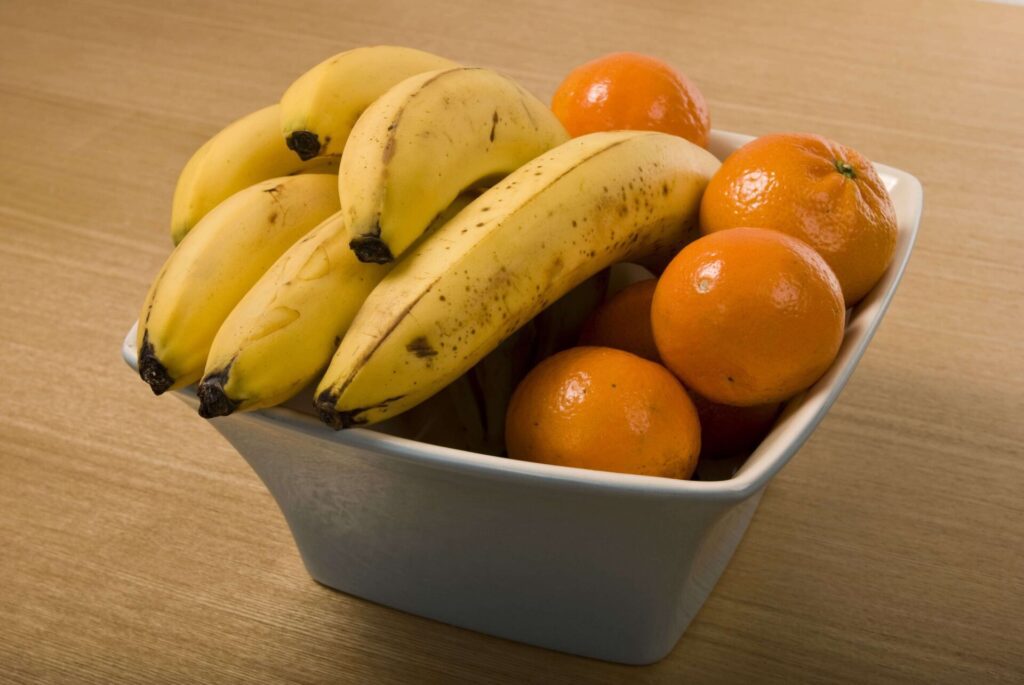
The high content of fiber in bananas might help with constipation from pregnancy, and there is enough evidence suggesting that vitamin B-6 might help relieve vomiting and nausea during the early pregnancy days.
Apples
Apples are full of nutrients that help the growing fetus, including:
· Fiber
· Vitamins A and C
· Potassium
Fruits To Avoid During Pregnancy
While fruits are great, not all are your friends. While pregnant, there are certain fruits that you strictly need to stay away from. These fruits contain elements in them that are harmful for fetal development.
Semi Ripe Or Unripe Papaya
Papayas are delicious. We get it. But, if you are pregnant, it is only advisable that you eat the ripest and most yellow papaya available. Pregnant women should strictly stay away from unripe or semi-ripe papaya.
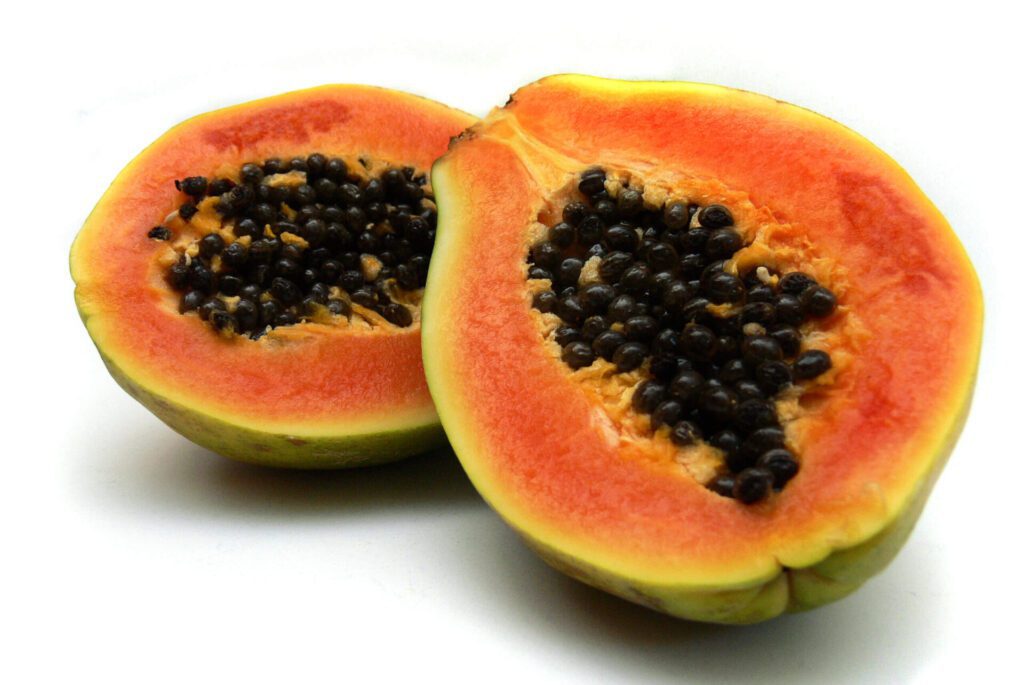
Here’s why:
- Unripe papayas have an abundance of latex, which triggers early uterine contractions. This might result in a miscarriage.
- That contains great amounts of papain. One of the biggest side effects of this element is that it may trigger early labor. The reason for this is because papain looks very similar to a molecule made for this role, which the body mistakes for papain for.
- Latex is a very common allergen. The common symptoms of allergy include rashes, swelling, runny nose, itching, etc. However, sometimes an allergy reaction might result in breathing difficulties or anaphylaxis. In cases like these, medical attention is an immediate requirement.
Pineapple
Everyone loves a good pineapple. It is sweet, bright yellow in color, and is delicious whether eaten raw or used in dishes.
Unfortunately, pregnant women are not as such allowed to eat pineapples, and for obvious reasons. Pineapple contains the enzyme bromelain that helps break down protein. One of its major side effects is that it can soften the cervix, leading to early labor.
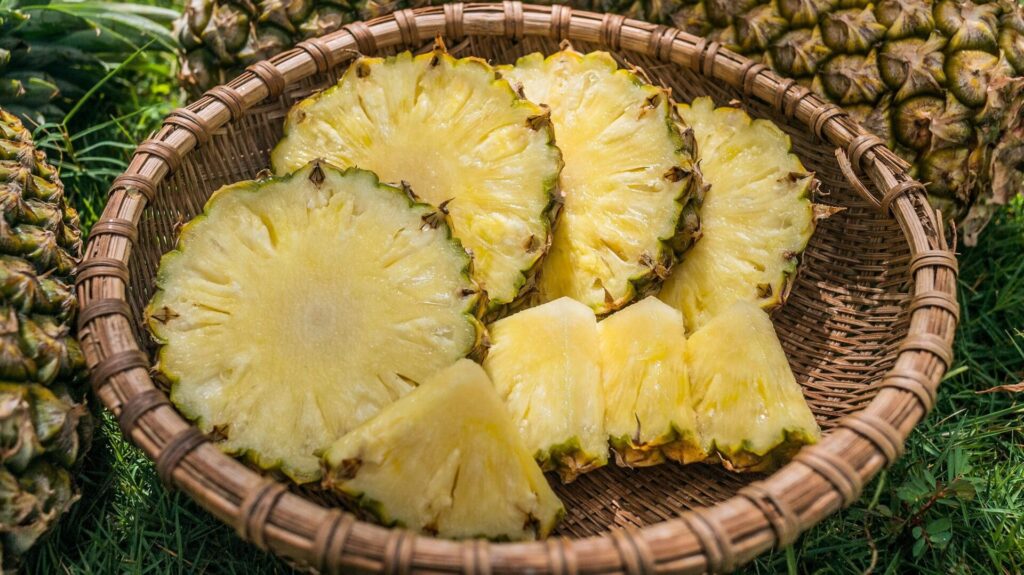
However, the effects of bromelain in causing early labor are only applicable when one consumes huge amounts of pineapple. This means that while you need to avoid concentrated bromelain pills, enjoying a couple of pieces of pineapple does not sound like such a bad idea.
But, do keep in mind that too much pineapple may cause issues because of its acidic nature, like acid reflux, diarrhea, or heartburn.
The Bottom Line
Eating grapes during pregnancy is not a “NO” despite popular beliefs. Grapes are excellent sources of antioxidants, fluids, and other nutrients that are good for both the mother and the baby.
However, you must always eat moderate amounts of it as it contains natural sugar, which can add up over time. If you have gestational diabetes, you definitely need keep a balance on the quantity of grapes you are consuming.
RECOMMENDED READING:
Already have an account?
Sign In
Create your account
User added successfully. Log in









